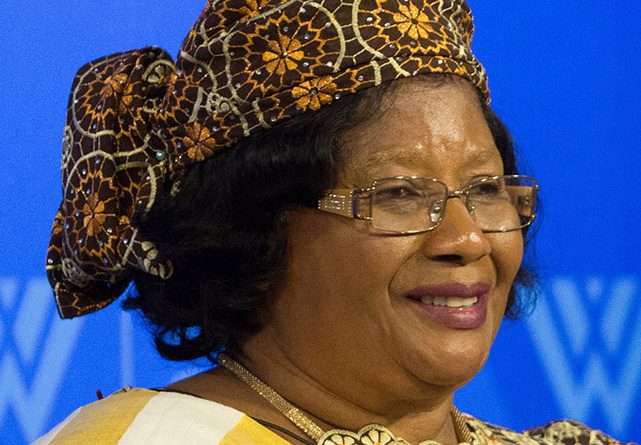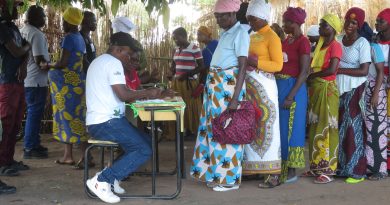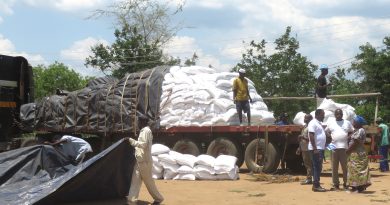Violence against women politics: Why the leadership must act
By Joseph Kayira
Prior to the 2019 general elections, a senior member from the ruling Democratic Progressive Party (DPP), made offensive remarks on former first lady Patricia Shanil Dzimbiri, who was also Member of Parliament for Balaka West at the time. DPP’s Ben Phiri’s attacks were interpreted as attacking the modesty of a woman.
Eventually, Phiri, a DPP legislator for Thyolo Central, was compelled to apologise. But Dzimbiri said she would not accept that apology until Phiri went back to the constituency where he made the offensive remarks and apologise publicly.
“As most of you are aware there is a video in circulation in which I was captured at one of the campaign rallies in Balaka District with sentiments directed at the Hon. Dr. Shanil Dzimbiri which have been interpreted as attacking the modesty of a woman. I would like to sincerely and unconditionally apologize to Dr. Shanil Dzimbiri, her family members, women of Malawi and all Malawians offended by the remarks.
“I further wish to apologize to the Democratic Progressive Party for the damage the sentiments have caused to the Party. I wish to emphasize that the sentiments do not represent the position of the Party or it’s leader. Once again, my sincere apologies to Hon. Dr. Shanil Dzimbiri and everyone offended by the remarks,” Phiri said in his apology.
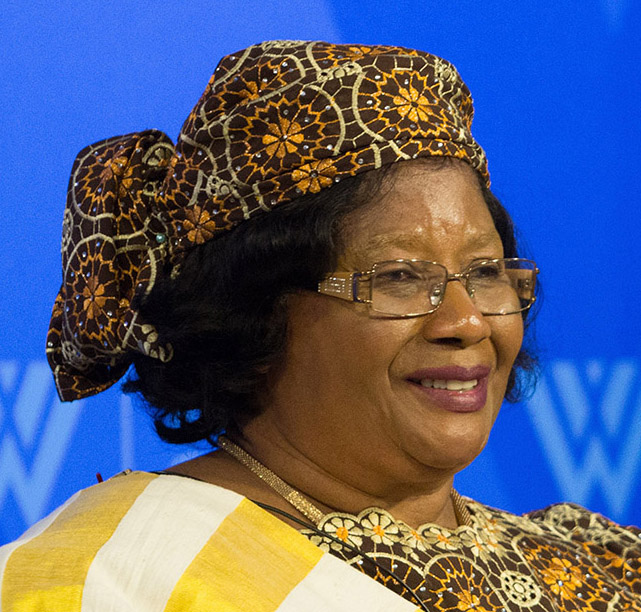
Mrs Banda: Stop abusing innocent women (Photo Credit: Internet)
Rights activists, advised Dzimbiri to seek legal redress. Others thought the DPP leadership should have done more to take their legislator to task for insulting women.
Former president Joyce Banda condemned the attacks saying she would never forgive Phiri was insulting the former first who has done so much for her country.
“Honourable Shanil Dzimbiri is a dignified woman, a woman who has served her country well with integrity, a woman of substance and in my opinion, she was one of the best First Ladies we have had.
“Men and women of Malawi will not allow you to abuse an innocent woman who has done so much for our country. it is for this reason that I will not allow a few sick ones like you to demean women the way you have done,” Mrs Banda, herself a victim of political violence, said.
Mrs Banda, the second female president on the African continent after Ellen Johnson-Sirleaf, has also suffered abuse from political opponents. She has been called names with others saying Malawi was not ready for a female president.
Others went on to demean her as a mere mandazi seller [fritter-seller] was not capable to lead Malawi. All this was said to demoralize her, and smear her political career. But while dismissed as a fritter-seller at home, on the international scene Mrs Banda has been voted as one of the most powerful women in the world by Forbes magazine.
Mrs Banda continues to champion children’s rights, women’s rights, and rights for the disabled and the maginalised groups. Ironically, it is in politics where politicians have been calling her names and tarnishing her image.
New chapter; women getting restive
But the age of abuse is over, say politicians, political commentators and rights activists. They say women in politics must not give in to a few male chauvinists who still think the woman’s place is in the kitchen.
Activists are also asking parties to respect women in politics by granting them their wish to vie for any positions of their choice without intimidation and harassment.
Lingalireni Mihowa, the Country Director for Oxfam in Malawi says women have freedom of engagement in politics and this is enshrined the republican Constitution and the many protocols that Malawi is a party to.
She says for years now, Oxfam has engaged political parties to refrain from harassment of women in politics and systemic barring of women contestants to fill up key positions in parties.
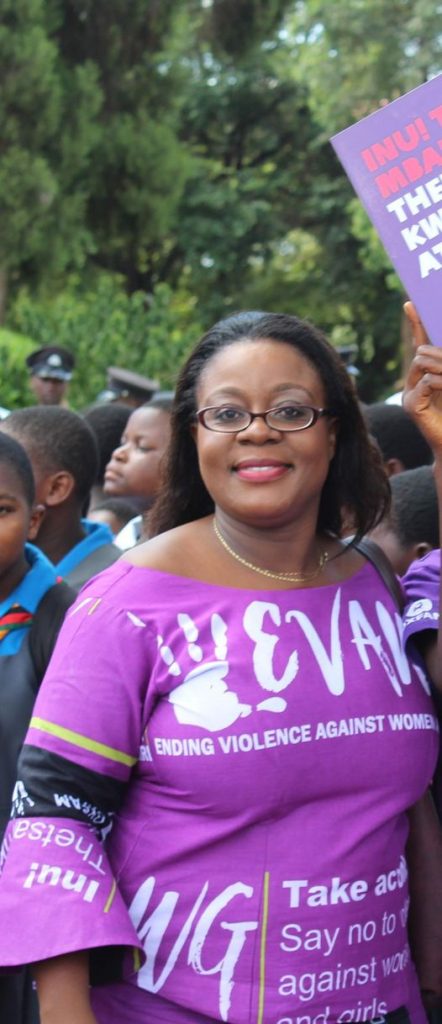
Mihowa: Women can help to entrench democracy (Photo Credit: Oxfam)
“We have seen attacks at personal level on women who want to contest in political parties. Social media has been awash with messages that demoralize women. This is wrong. Sometimes women are victims of physical violence. Thugs are hired to beat up women. All these things work against progress of women in politics,” Mihowa says.
She calls for mindset change if women are to make progress and get counted in politics. Mihowa adds that Oxfam has involved everyone to impart knowledge on why women matter in politics.
“Women who are in positions as legislators, ward councillors and other positions in political party structures have not disappointed. They are not involved in corruption, they deliver and have helped to entrench democracy,” Mihowa says.
She thinks time is now for political parties to embrace an open-door policy and encourage more women to join politics. Actually, parties can benefit more if they involve more women in decision-making position than when they resort to treating them as second-class citizens.
“There is the gender policy which should be implemented at all levels of the party structure. There is the code of ethics and the 50:50 campaign that aims to achieve gender equality; all these punctuated with well-meaning policies that support and protect women from political violence can help Malawi record the progress that we have always wanted in politics,” Mihowa says.
She insists that leaders have a crucial role to play to end political violence against women in politics. Mihowa says as the country gears to elect representatives at parliamentary, local government and the presidency, it is imperative that leaders make sure that women are given the opportunity to contest in an environment that is void of harassment and intimidation.
“Let us protect women; let us make sure that prior to the 2025 general elections there are no instances of political violence against women contestants. As Oxfam we have worked with everyone including women in Parliament and we managed to give them projects in their constituencies.
“We have ensured that the media is also profiling women leaders, especially during elections. We want every woman contestant to prosper including independents, who have also benefitted from our programmes. Our wish is to make sure that as parties go to conventions and later to the general elections, they should be transparent and avoid underhand tactics as they elect representatives,” she says.
Conclusion
As Malawi gets set for elective political party conventions, instances of political violence will increase. They should not be part of the country’s nascent democracy. Yet, leaders tend to mute when thugs descend on women contestants. The question is: why are political leaders failing to promote values that protect women from political violence?
“It is the lack of political will to deal decisively with political violence against women that is fueling these unfortunate instances,” says 38-year-old Khadija who plans to contest in the 2025 parliamentary elections in Balaka South constituency.
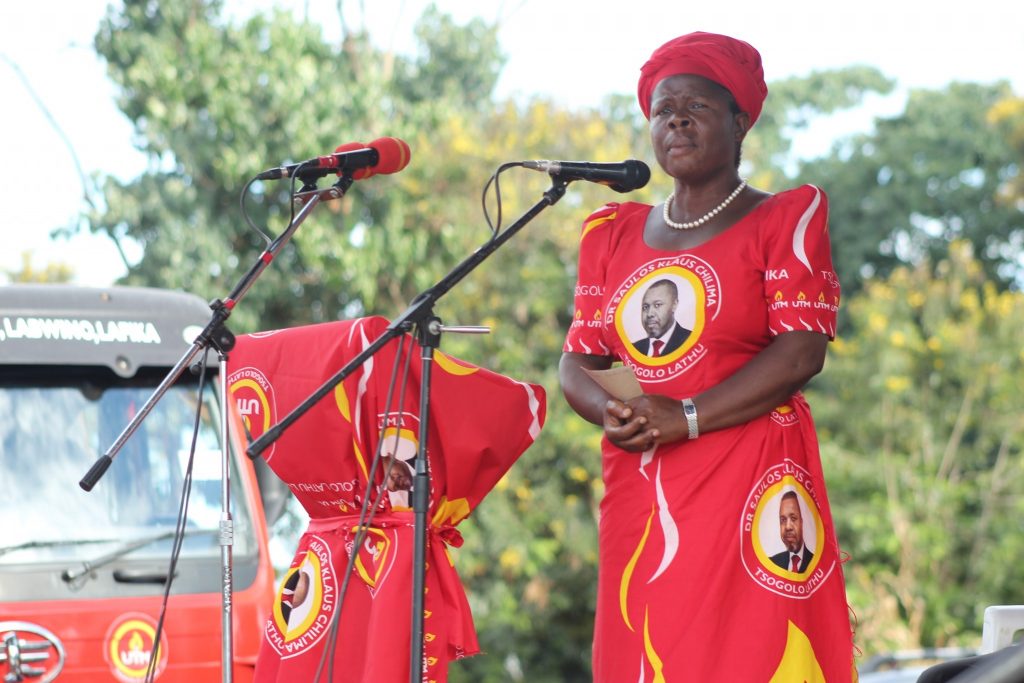
Dzimbiri: A male politician attacked her in what was viewed as an attack on the modesty of a woman (Photo Credit Internet)
She adds that there is need for political parties and their leaders to reflect on how they have performed in the area of fighting gender-based violence, physical attacks and online violence against women contestants in politics.
“The truth is that political parties could have done better on violence against women participating in politics. As for me, I know that am walking into a difficult turf. But people have assured me of their support. I am not going to give up because of pressure from men who use dirty tricks to intimidate women in politics,” says Khadija.
On the road to 2025 general elections, it now remains to be seen if political leaders will stand up and say no to political violence against women participating in politics.
*Joseph Kayira is a Malawian journalist working at Montfort Media. This story is part of Gender Links News Service.

